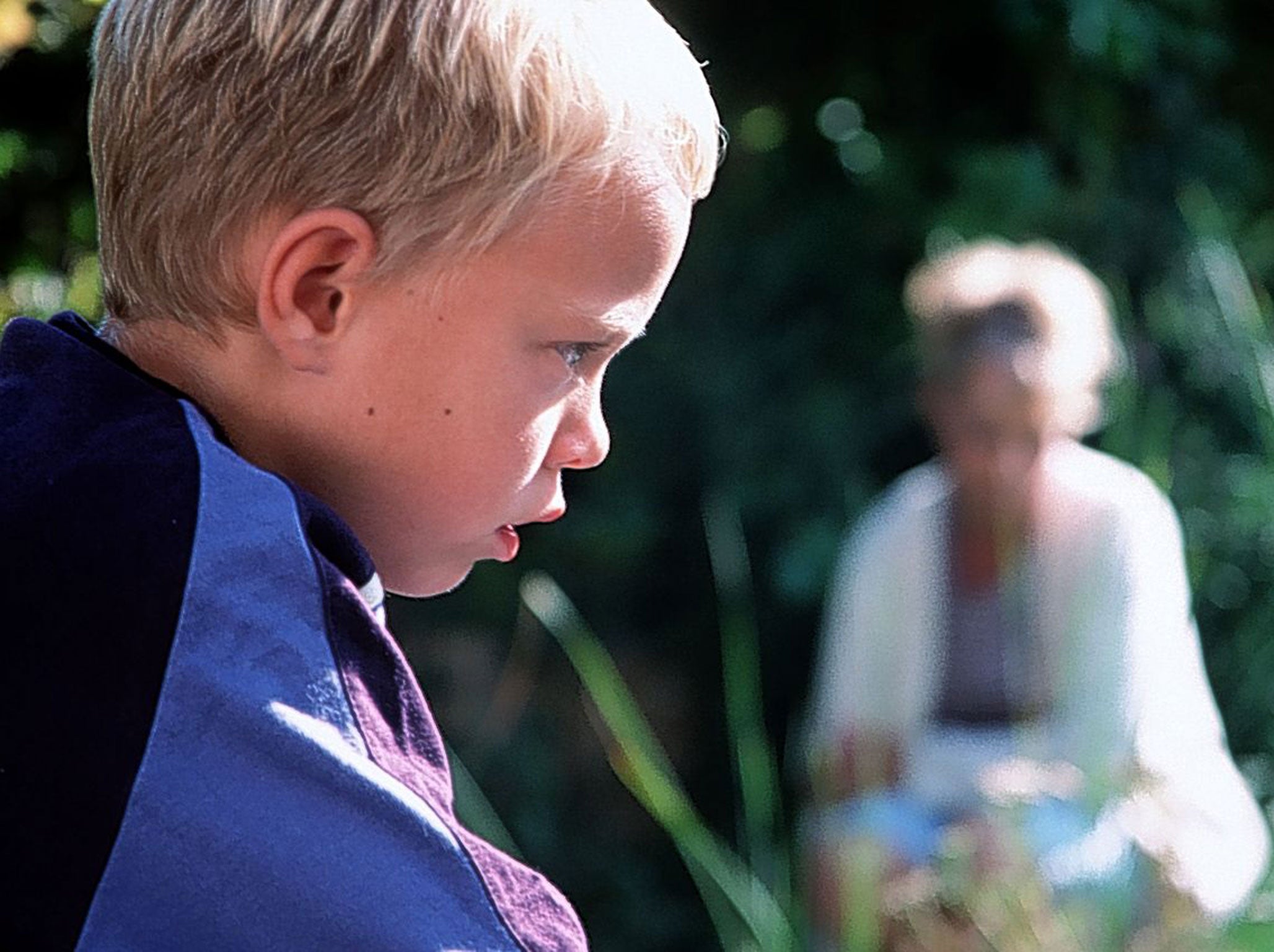The Cinderella Law: Emotional correctness gone mad
Rather than protecting children, the Cinderella Law could turn family life into a place where no one is safe

Your support helps us to tell the story
From reproductive rights to climate change to Big Tech, The Independent is on the ground when the story is developing. Whether it's investigating the financials of Elon Musk's pro-Trump PAC or producing our latest documentary, 'The A Word', which shines a light on the American women fighting for reproductive rights, we know how important it is to parse out the facts from the messaging.
At such a critical moment in US history, we need reporters on the ground. Your donation allows us to keep sending journalists to speak to both sides of the story.
The Independent is trusted by Americans across the entire political spectrum. And unlike many other quality news outlets, we choose not to lock Americans out of our reporting and analysis with paywalls. We believe quality journalism should be available to everyone, paid for by those who can afford it.
Your support makes all the difference.Whatever the intention of the promoters of the new "Cinderella Law", its main accomplishment will be to turn the emotional landscape of family life into a dangerous battlefield.
The aim of this law is to change existing legislation on child neglect by expanding the meaning of criminal abuse to encompass the complicated domain of the emotion. The Conservative MP Robert Buckland, who is the principal Parliamentary campaigner for a law that would criminalise the emotional abuse of children, claims that without such legislation "the wicked stepmother of Cinderella" gets "away scot-free". However, once the emotional behaviour of parents becomes a target for policing, every mother and father is at risk of being labelled an abuser.
The call for the Cinderella Law represents the latest phase of a campaign to continually expand the range of parental behaviour that can be condemned as abusive. These days, parents who smoke or drink alcohol in front of children risk being characterised as child-abusers. Opponents of the tradition of male circumcision condemn Jewish and Muslim parents as abusers of children. Health activists denounce parents of overweight children for the same offence. Mothers and fathers who educate their children to embrace the family's religion have been characterised as child abusers by anti-faith campaigners. Precisely because the abuse of children is regarded as such a terrible crime, advocates of a variety of different causes frame their campaign in the language of child protection.

The concept of emotional cruelty or abuse trumps all other forms of parental misbehaviour, for it embraces just about every type of ambiguous, emotionally charged encounter within the family. Campaigners devoted to the criminalisation of emotional abuse have deliberately defined it in an amorphous and expansive manner. According to the different guidelines drawn up on this subject, emotional abuse can refer to virtually every parental failing.
The National Society for the Prevention of Cruelty to Children offers a definition of emotional abuse that includes some very real and unambiguous acts of harm, such as "conveying to a child that they are worthless or unloved, inadequate", but it also includes forms of behaviour that, depending on the context, may or may not be harmful to a child.
For example, the NSPCC includes in its definition of emotional abuse the "making of fun" of what a child says or how they communicate. I am not sure what universe the NSPCC inhabits, but in the real world, the making fun of one another is the stuff of family life. When parents and children interact, they are likely to make jokes at each others' expense.
Where does good-natured banter end and destructive verbal joking begin? Whatever the answer is to this question, it will not be found in the law courts. The NSPCC takes no chances with its definition of emotional abuse. It castigates parents who don't take their children seriously and who wilfully or otherwise neglect them. But if you take your child too seriously and become obsessed with their welfare, you also stand accused of emotional abuse.
The NSPCC claims that emotional abuse "may feature age or developmentally inappropriate expectations being imposed on children". It contends that emotional abuse may include interactions that are "beyond the child's developmental capability". But it can also mean over-protecting a child and limiting their "exploration and learning, or preventing the child participating in normal social interaction".
In other words, just about anything that is not middle-of-the road, unimaginative child-rearing is a potential quarry for the abuse-mongers. Who is to decide what's beyond your child's developmental capability? Robert Buckland MP? A presumptuous inspector from the NSPCC? On the basis of this criterion, the "Tiger Mother" will be locked up and any zealous, over-ambitious parent will be treated as a potential abuser.
But it is not only the high expectations of a child by a scarily ambitious father that has turned into an act of potential abuse. The risk-averse overprotective mother who is scared to let go of her child faces the disapproval of the parenting police, too.
Yet, as every parent knows, assessing a child's developmental capability always requires a judgement call. Whether or not to encourage children to embark on a new phase of their life or to hold them back is never a simple decision. Parents who use their intuition and experience are likely to make the right call, but they may also make mistakes and place their children in situations that they are not ready for. That is the stuff of family dynamics, not the marker for criminal behaviour.
One question raised by the discussion of emotional abuse and cruelty is: who decides what are "developmentally inappropriate expectations being imposed on children"? What parents expect of their children and how they communicate those sentiments are an outcome of their personal subjective inclinations, cultural and social background and the specific context within which they conduct their relationship with their offspring.
Most parents will confirm that they have, from time to time, encountered mothers and fathers who push their children far too hard, as well those who do their best to protect their children from the experience of real life. We can all have strong opinions about the child-rearing techniques and emotional behaviour of mothers and fathers. But until now it has been recognised that it is not the role of the law to impose an approved form of emotional behaviour upon a family
Unfortunately, individuals, including family members, are often cruel to one another. However, in most situations, acts of cruelty within a family are not simply an outcome of malevolent behaviour. It may come as a surprise to the would-be Parliamentary therapists, but the old adage "you have to be cruel to kind" is not simply an apology for vindictive behaviour. Sometimes, behaviour that appears cruel from the vantage point of a seminar on emotional correctness in Westminster may well be motivated by the impulse of parental love.
Some of the most painful remarks that a child can experience are the outcome of acts of miscommunication, insensitivity or parental anxiety. Virtually every close and intimate relationship contains the risk of experiencing emotional pain.
"Love can be so cruel" is the refrain of many romantic songs and novels. Like love, cruelty is integral to intimate relationships. Yet understanding the emotions caused by the experience of rejection and pain is not an exact science. In the vast majority of cases, impressions of emotional abuse are a highly subjective reactions to circumstances that the observer only understands superficially. This is an area that is wholly unsuitable for legal regulation and for the policing of parents.
So what's driving the current crusade to save Cinderella from her wicked stepmother? As I argue in my book, Paranoid Parenting, child-rearing experts and child-protection campaigners often communicate the belief that mothers and fathers lack the emotional literacy required for parenting and therefore represent a danger to their young ones.
This assessment is underpinned by the current dominant ethos of child-rearing that demand that parents play the role of emotional manager of their child. This therapeutic emphasis is frequently echoed by policy makers who insist that the "quality of emotional bond" between parent and child is the best guarantor of effective parenting.
Child-rearing advice today is saturated with the language of emotion and therapy. The management of feelings, learning how to diagnose a child's emotions, and the art of listening feature prominently in manuals and advice columns. Arguably, the main focus of parenting classes is to train mothers and fathers to internalise the emotionally correct form of behaviour. What underpins the current anxiety regarding the emotional behaviour of parents is the conviction that they lack the moral resources necessary to cultivate a close relationship or a bond with their children.
Although the publicity surrounding the new Cinderella Law draws attention to the perilous behaviour of wicked stepmothes who intentionally inflict emotional suffering on their young ones, the real target of the campaign are the parents who are incapable or unwilling to bond with their children. Parenting magazines and manuals, as well as official publications, continually admonish parents, saying that unless they learn communication and listening skills, they will fail to bond with their children. And this failure to bond contains the implication of emotional damage.
Take the report Baby Bonds, published by The Sutton Trust a couple of weeks ago. The report succeeded in gaining sensational publicity for this campaign. Headlines such as "Four in 10 children fail to connect with mum and dad" signalled the conviction that Britain faced an epidemic of emotionally damaging parenting. The report claimed that the problem of bonding was particularly widespread among poor, working-class people. It estimated that "in very high-risk populations – where families face multiple problems – up to two-thirds of children are insecurely attached".
The Sutton Trust Report concluded that parents who were either very young or impoverished were likely to fail to secure attachments with their babies. The report argued that this failure to bond led to disastrous emotional outcomes. It inflicted emotional damage on children and condemned them to a life of underachievement and failure. Just to ensure that its alarmist message was absolutely clear, it warned that "children who have been abused are nearly always also insecurely attached".
The claims advanced by Baby Bonds about the perils of failing to attach offers a theory that represents abuse, especially emotional abuse, as the inexorable consequence of the psychological failings of mothers and fathers. Such paternalistic contempt for the so-called high-risk impoverished mothers and father often extends to the wider world of parenting.
Promoters of this prejudice continually believe that, since mothers and fathers are far too insensitive to understand the emotional needs of their children, their role is to save children from the toxic behaviour of their parents. Though these self-appointed child-savers may be well-intentioned, they do far more harm than good. The policing of the emotional life of families is driven by an authoritarian impulse whose main consequence is to diminish parental authority.
Human cruelty cannot be legislated out of existence. But its destructive effect can be contained by providing young ones with the child care, schooling and community support that can allow them to understand that they are not on their own. Throughout history, the best antidote to cruelty was the cultural and educational development of society. We need fewer laws and more opportunities for children, and indeed for their parents, to realise their potential.
One final point. Child rearing is based on the cultivation of a relationship. It is a relationship that works best when parents know that they are trusted to do what is in the best interest of their children.
Frank Furedi is professor of sociology at the University of Kent and author of 'Paranoid Parenting' (Continuum International Publishing Group, £13.99)
Join our commenting forum
Join thought-provoking conversations, follow other Independent readers and see their replies
Comments